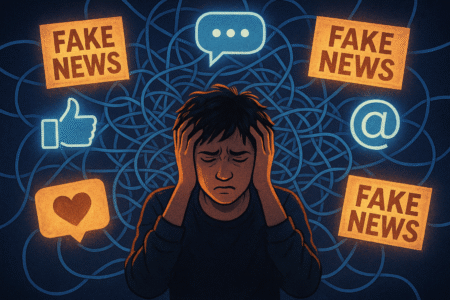The world of 2025 is one where opportunity and uncertainty collide. On one hand, humanity has never been more connected, technologically advanced, and resourceful. On the other, the World Economic Forum’s Global Risks Report 2025 warns of a cluster of social threats that are not only immediate but deeply interconnected: state-based armed conflict, extreme weather events driven by climate change, misinformation, and the societal impacts of artificial intelligence (AI). These issues demand urgent attention, not just from governments and institutions, but from every level of society. State-Based Armed Conflict: A Return to Instability Conflict is no stranger to human history, but its resurgence in 2025 underscores how fragile peace can be. Wars fueled by territorial disputes, political rivalries, and resource scarcity continue to displace millions, destabilize regions, and deepen humanitarian crises. Beyond the battlefield, these conflicts ripple outward—creating refugee crises, economic instability, and cultural fractures. To address this, societies must champion diplomatic solutions and peacebuilding initiatives rather than resorting to prolonged violence. Strengthening international institutions like the United Nations, supporting grassroots peace movements, and fostering intergovernmental dialogue can pave the way for negotiated settlements. Education also plays a critical role in countering narratives that glorify violence, helping young people envision futures built on cooperation rather than division. Climate Change and Extreme Weather: Nature’s Alarming Signals Climate change is no longer a distant threat; it is a lived reality. In 2025, extreme weather events—heatwaves, floods, droughts, and hurricanes—are disrupting food security, damaging infrastructure, and endangering lives. Vulnerable communities are bearing the brunt, while wealthier nations grapple with the mounting costs of recovery. The path forward requires collective climate resilience. Governments must accelerate commitments to renewable energy and stricter emissions targets, while industries should embrace green technologies and sustainable practices. But equally important is individual responsibility: reducing waste, adopting energy-efficient lifestyles, and supporting eco-conscious businesses. Local initiatives, such as community-led clean-up drives and sustainable farming projects, can make global goals more tangible and impactful. Misinformation: The Digital Pandemic In an age of constant connectivity, information travels faster than ever before—but so does misinformation. False narratives about politics, health, and science are shaping public opinion, dividing communities, and eroding trust in institutions. The viral spread of misinformation often triggers unrest, undermines democratic processes, and, in some cases, puts lives at risk. Combatting this requires a multi-pronged strategy. Social media platforms must be held accountable for monitoring harmful content while ensuring freedom of expression. Fact-checking organizations and independent journalism need greater visibility and support to provide accurate narratives. At the grassroots level, cultivating digital literacy is key. Schools, universities, and even workplaces should teach individuals how to critically assess sources, question online claims, and resist the emotional pull of sensationalized content. The Societal Impact of Artificial Intelligence Artificial intelligence has transformed industries, communication, and even healthcare. Yet, its rapid rise raises concerns: job displacement due to automation, ethical dilemmas in AI decision-making, and the potential misuse of generative AI in spreading disinformation. Left unchecked, AI risks deepening inequality, empowering surveillance states, and blurring the lines between reality and manipulation. But AI is not inherently harmful—it is a tool. Harnessing its benefits while minimizing its risks requires strong governance frameworks. Governments must collaborate with technology leaders to establish regulations around data privacy, algorithm transparency, and ethical usage. At the same time, society should invest in reskilling programs, preparing workers for jobs of the future rather than leaving them behind. The responsible use of AI in education, healthcare, and sustainability could, in fact, be one of the strongest weapons against inequality and environmental decline. Building a Resilient Society What connects all these challenges—conflict, climate change, misinformation, and AI—is their ability to destabilize trust. When trust between governments, citizens, and institutions breaks down, crises deepen. Therefore, the ultimate solution lies in rebuilding social cohesion. Communities must prioritize inclusivity, equity, and collaboration, ensuring no group feels left behind. Every individual has a role: advocating for peace, reducing their carbon footprint, questioning digital content, or learning about AI ethics. When collective action meets institutional reform, societies can turn today’s risks into tomorrow’s opportunities. The Global Risks Report is a wake-up call, but it is not a prophecy of doom. It is a challenge—a reminder that humanity has the creativity, resilience, and resources to overcome even the greatest threats. If we act decisively, cooperatively, and ethically, the very risks we fear today can become the driving force behind a more just, sustainable, and hopeful tomorrow. Keep Reading Foramz for your daily dose of moral support
CONNECTING THOUGHTS

